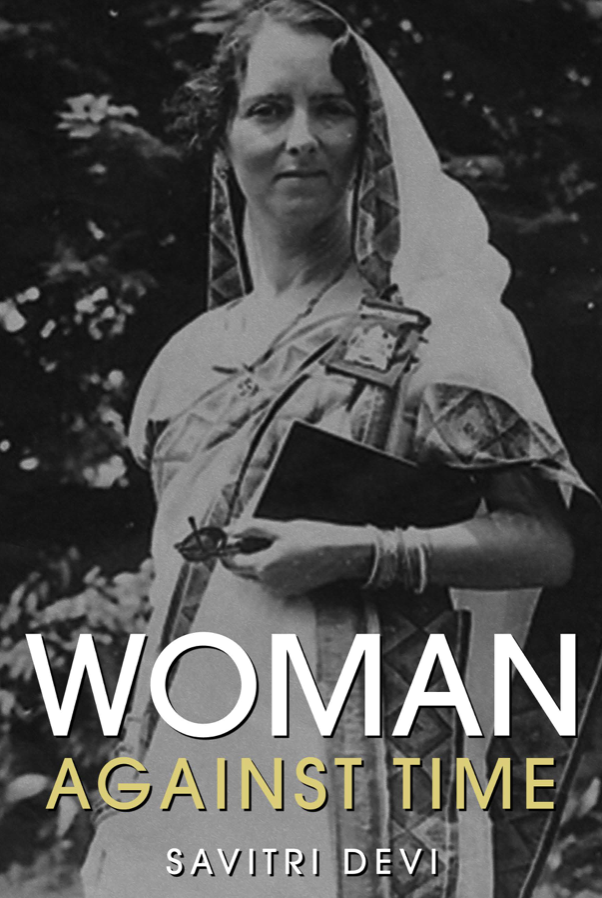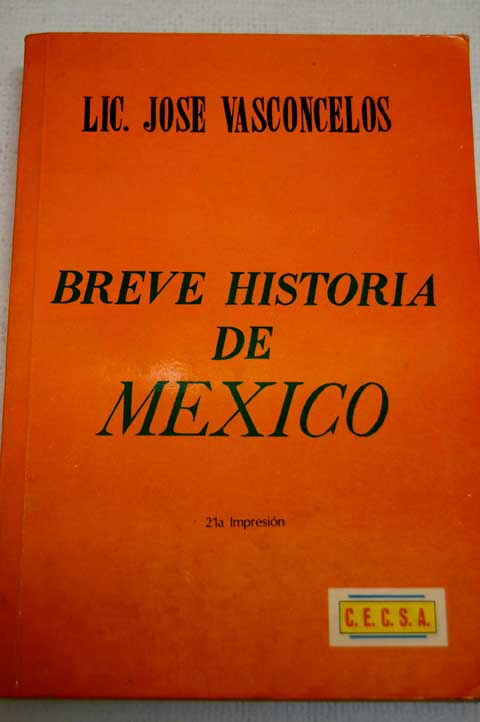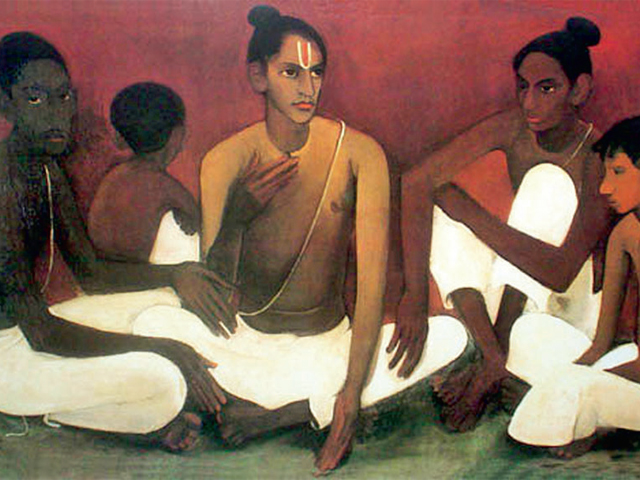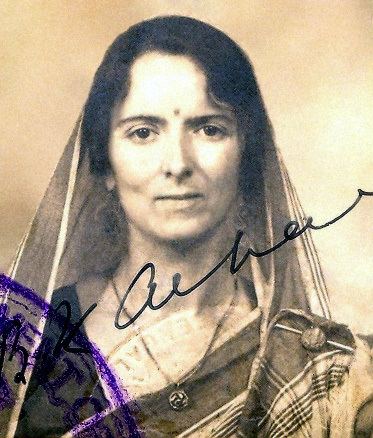 Much has been said about Jewish ‘racism’. And the doctrine of the ‘chosen people’ has been made an expression of this ‘racism’. In reality, in the eyes of the ancient Jews—I mean, of course, the orthodox Jews—membership of their race, i.e. of the ‘family of Abraham’, was only of value if it was combined with the exclusive service of the ‘jealous God’, Yahweh, the sole protector of Israel. According to the Bible, the Moabites and Ammonites were racially very close to the Jews. Were not the former descended from Moab, the son of Lot and his eldest daughter, and the latter from Ben-Ammi, the son of Lot and his youngest daughter? [1] Lot, son of Haran, was a nephew of Abraham. [2] It does not seem that this link of kinship facilitated relations between the children of Israel and these peoples. If blood united them, their respective cults separated them. Chemosh, the God of the Moabites, and Milcom, the God of the Ammonites, were, in the eyes of the Jews, ‘abominations’—like all the gods of the earth except their own—and their worshippers, enemies to be exterminated. In Jewish racism, independent of any religion, the attitude of accepting a Jew and treating as such any man born as such, whatever his beliefs may be, seems to me to be something recent, dating at most from the eighteenth or seventeenth century, that is to say, from the time when Israelite-inspired Masonic societies began to play a determining role in the politics of the Western nations.
Much has been said about Jewish ‘racism’. And the doctrine of the ‘chosen people’ has been made an expression of this ‘racism’. In reality, in the eyes of the ancient Jews—I mean, of course, the orthodox Jews—membership of their race, i.e. of the ‘family of Abraham’, was only of value if it was combined with the exclusive service of the ‘jealous God’, Yahweh, the sole protector of Israel. According to the Bible, the Moabites and Ammonites were racially very close to the Jews. Were not the former descended from Moab, the son of Lot and his eldest daughter, and the latter from Ben-Ammi, the son of Lot and his youngest daughter? [1] Lot, son of Haran, was a nephew of Abraham. [2] It does not seem that this link of kinship facilitated relations between the children of Israel and these peoples. If blood united them, their respective cults separated them. Chemosh, the God of the Moabites, and Milcom, the God of the Ammonites, were, in the eyes of the Jews, ‘abominations’—like all the gods of the earth except their own—and their worshippers, enemies to be exterminated. In Jewish racism, independent of any religion, the attitude of accepting a Jew and treating as such any man born as such, whatever his beliefs may be, seems to me to be something recent, dating at most from the eighteenth or seventeenth century, that is to say, from the time when Israelite-inspired Masonic societies began to play a determining role in the politics of the Western nations.
This is perhaps a product of the influence of Western rationalism on the Jews, despite themselves. It found its most spectacular expression in the late nineteenth and twentieth centuries in Zionism, which could be called an avant-garde Jewish nationalism. This movement certainly respects the religious tradition of the Talmud and the Bible, but without identifying with it in any way. Its political faith is ‘national’, but it cannot be compared to that of Catholic Spain, Ireland or modern Greece, which is also inseparable from the state religion. But I would call it nationalism rather than racism, because it involves the exaltation of the Jewish people as such, without the enthusiastic awareness of any blood solidarity uniting all the peoples of the desert who are usually called Semitic.
Modern in its expression, this nationalism is not, however, different from the solidarity which, after the introduction of the Mosaic law, existed among all the children of Israel as early as the thirteenth century B.C. The religion of Yahweh played a primordial role. But this role consisted precisely in making all the Jews, from the most powerful to the humblest, feel that they were the chosen people, the privileged people, different from the other peoples, including those who were closest to them by blood, and exalted above them all. This the Jews have increasingly felt in modern times without the help of a national religion; hence the decreasing importance of that religion among them (except in the few permanent hotbeds of Jewish orthodoxy).
In other words, the Jews, who for centuries had been an insignificant tribe in the Middle East, among so many others, very close to the others in language and religion, before Abraham and especially before the Mosaic reform, gradually became, under the influence of Moses and his successors Joshua and Kaleb, and then, under that of the prophets, a people immersed in their own idea of themselves; having nothing but contempt for the men of the same race as themselves, who surrounded them, and all the more so for the people of other races. The prophet Ezra, on the return from the long Babylonian captivity, ordered those of his children who had remained in Palestine to marry Canaanite women to be set apart, on the pretext that this would only loosen the bond which united them and their families to Yahweh and weaken their sense of being a ‘chosen people’, a people not ‘like the others’.
They could have remained in this way indefinitely, isolated from the rest of the world by a national pride that was as immeasurable as it was unjustified because they were, already in antiquity, fairly mixed in race, if only because of their prolonged stay in Egypt. (The world would certainly not have been worse off for it—on the contrary.) They did not remain so because, to the idea of ‘one God’—a ‘true’ God, as opposed to the ‘false’ gods, the local and limited gods of other peoples—could not but be added, sooner or later, the idea of universal truth and human community. A God who alone ‘lives’—while all the others are only insensible matter, at most inhabited by impure forces—can only logically be the true God of all possible worshippers, that is, of all men. To refuse to admit this, it would have been necessary to attribute life, truth and beneficence to the gods of other peoples as well, in other words, to cease seeing in them only ‘abominations’. And the Jews refused to do this, after the sermons and threats of their prophets. The one God could well prefer a people. But he had to be, of necessity, the God of all peoples—the one whom, in their folly, they ignored, while only the ‘chosen people’ paid him tribute.
The first attitude of the Jews, conquerors of Palestine, towards the peoples who worshipped other gods than Yahweh, was to hate and exterminate them.
Their second attitude (when in Palestine the Canaanite resistance had long ceased to exist, and above all, when the Jews were losing more and more of the little importance they had ever had on the international level, to end up being only the subjects of Greek kings) was to throw the idea of the inanity of all Gods (except their own) and the false conception of ‘man’ as independent of peoples into the spiritual food basket of a decaying world; of ‘man’, a citizen of the world (and ‘created in the image of God’), whom Israel, the chosen people, had the mission of instructing and guiding to true ‘happiness’.
This is the attitude of the Jews, more or less ostensibly daubed with Hellenism, who from the fourth century BC until the Arab conquest in the seventh century AD formed an ever more influential proportion of the population of Alexandria, as well as of all the capitals of the Hellenistic and then the Roman world. This is the attitude of the Jews today, the very attitude that makes them a people like no other, and a dangerous people: the ‘ferment of decomposition’ of other peoples.
It is worth my attempt to give you a story about it.
As I said, this was already germinating in the fanaticism of those servants of the ‘unique’ and ‘living’ God, the Jewish prophets, from Samuel to the writers of the Kabbalah. One thing that must not be forgotten, if we want to try to understand it, is that the ‘one God’ of the Jews is transcendent, but not an immanent one. He is outside of Nature, which he has drawn out of nothing by an act of will, and different from it in essence; different not only from its sensible manifestations, but also from anything that might permanently underlie them. He is not that Soul of the Universe in which the Greeks and all Indo-European peoples believed, and in which Brahmanism still sees the Supreme Reality. He made the world as a craftsman makes a marvellous machine: from without. He has imposed upon it the laws which he has willed, and which might have been different if he had willed them differently. He gave man dominion over the other created beings. And he ‘chose’ the Jewish people from among men, not for their intrinsic worth—this is clearly specified in the Bible—but arbitrarily, because of the promise, once and for all, to Abraham.
In such a metaphysical perspective, it was impossible to consider the gods of other peoples—and all the less so since these were, for the most part, natural forces or celestial bodies: ‘aspects’ or ‘expressions’ of the one God. It was also impossible to emphasise in the least the indefinite variety of men and the irrefutable inequality which has always existed between human races, and even between peoples of more or less the same race. Man, whoever he may be, must have had in himself, and alone of all created beings, an immense value, since the Creator had formed him ‘in his own image’ and established him, because of this very fact, above all living beings. The Kabbalah says it very clearly: There is the uncreated Being who creates, God; the created being, who creates: man; and the rest: all the created beings—animals, plants, minerals—who do not create. This is the most absolute anthropocentrism, and a false philosophy to begin with, since it is obvious that ‘all men’ are not creators (far from it!) and that some animals can be.[3]
But that is not all. In this new humanistic perspective, not only did the Jew retain his place as the ‘holy people’, as the Bible puts it, who were destined to bring the one Revelation to the world, but whatever other peoples had produced or thought was only of value insofar as it accorded with the said Revelation. Unable to deny the enormous contribution of the Greeks to science and philosophy, some Jews of Alexandria, of Greek culture (and sometimes of Greek name, such as Aristobulus of the third century B.C.) did not hesitate to write that all the most solid Greek thought—the work of Pythagoras, Plato, Aristotle—was due, in the final analysis, only to the influence of Jewish thought, which had its source in Moses and the Prophets. Others, such as the famous Philo of Alexandria, whose influence on Christian apologetics was so considerable, did not dare to deny the obvious originality of the Hellenic genius, but retained from the ideas elaborated by them only those which they could bring into line with the Mosaic conception of God and the world, altered or even completely distorted.[4] Their work is this hybrid product which is the result of the influence of the Mosaic genius. Their work is that hybrid product which in the history of thought bears the name of ‘Judeo-Alexandrian philosophy’, a set of ingenious combinations of concepts drawn more or less directly from Plato (not necessarily in the spirit of Plato) and old Jewish ideas (such as the transcendence of the one God and the creation of man ‘in his image’). This is a superfluous scaffolding, no doubt, in the eyes of the orthodox Jew, for whom the Mosaic Law suffices, but is a marvellous instrument of spiritual control over the Gentiles, in the service of Jews (orthodox or not) eager to wrest from other peoples the direction of Western (and later, world) thought.
Judeo-Alexandrian philosophy and religion, increasingly imbued with Egyptian, Syrian, Anatolian symbolism, etc., professed by the increasingly bastardised people of the Hellenistic world, formed the backdrop against which Christian orthodoxy as we know it gradually emerged in the writings of Paul of Tarsus and the early apologists, and became clearer in the course of the succession of Councils. As Gilbert Murray remarks, ‘it is a strange experience… to study those obscure congregations, whose superstitious, charlatan-ridden, hopelessly ignorant members, drawn from the proletariat of the Levant, still believed that God could procreate children in the wombs of mortal mothers, held the “Word”, “Spirit” and “Divine Wisdom” for persons bearing these names, and transformed the notion of the immortality of the soul into the ‘resurrection of the dead’, and to think that it was these people who were following the main road to the greatest religion of the Western world’.[5]
No doubt there was, in this early Christianity preached in Greek (the international language of the Near East at that time), more non-Jewish than Jewish elements by Jewish and then Greek missionaries to the raceless urban masses—so inferior in every respect to the freemen of the ancient Hellenic poleis. What dominated was the element which I dare not call ‘Greek’ but ‘Aegean’, or rather ‘pre-Hellenic Mediterranean’ or pre-Hellenic Near East, for the peoples of Asia Minor, Syria, and Mesopotamia all exemplified it, too, to a greater or lesser extent, in their cults from the depths of the ages. It was the myth of the young God cruelly put to death—Osiris, Adonis, Tammuz, Attys, Dionysus—whose flesh (wheat) and blood (grape juice) become food and drink for men, and who resurrects in glory every year in the spring. This element had never ceased to be present in the mysteries of Greece, both in classical times and before. Transfigured, ‘spiritualised’ by the sense of allegory attached to the most primitive of rites, it is manifest in the international ‘salvation’ religions, rivals of Christianity in the Roman Empire: in that of Mithras, Cybele and Attys.
As Nietzsche saw it so well, the genius of Paul of Tarsus consisted in ‘giving a new meaning to the ancient mysteries’: taking the old prehistoric myth, reviving it, interpreting it in such a way that, forever, all those who would accept this interpretation would also accept the prophetic role and the character of the ‘chosen people’ as bearers of the unique revelation.
_________
[1] The Bible, Genesis, Chapter 19, verses 36-38.
[2] The Bible, Genesis, Chapter 11, verse 27.
[3] The practical intelligence of animals is no longer questioned; yet it also can be creative, as Koehler’s experiments in particular show. But let us think especially of the paintings—eminently ‘abstract’—executed by several of Desmond Morris’s chimpanzees, creations which could be taken, and in fact are currently taken, for human works of the same style.
[4] Edouard Herriot, Philo the Jew, 1898 edition.
[5] Guibert Murray, Five stages of Greek religion, 1955 edition (New York) p. 158.
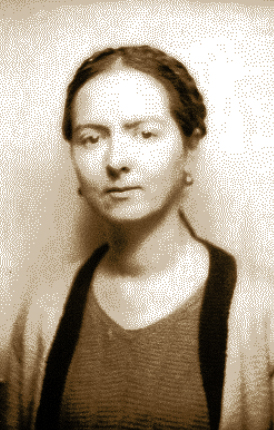 The more rigorous a reasoning is, impeccable from the purely logical point of view, the more its conclusion is false if the basic judgement from which it starts—the one expressed by its major premise, in the case of a simple syllogism—is itself false. This is clear. If I declare that ‘All men are saints’ and then I notice that the Marquis de Sade and all known and unknown sexual perverts, and all animal or child torturers, were or are men, I am forced to conclude that all these people were or are saints: an assertion whose absurdity is obvious.
The more rigorous a reasoning is, impeccable from the purely logical point of view, the more its conclusion is false if the basic judgement from which it starts—the one expressed by its major premise, in the case of a simple syllogism—is itself false. This is clear. If I declare that ‘All men are saints’ and then I notice that the Marquis de Sade and all known and unknown sexual perverts, and all animal or child torturers, were or are men, I am forced to conclude that all these people were or are saints: an assertion whose absurdity is obvious.